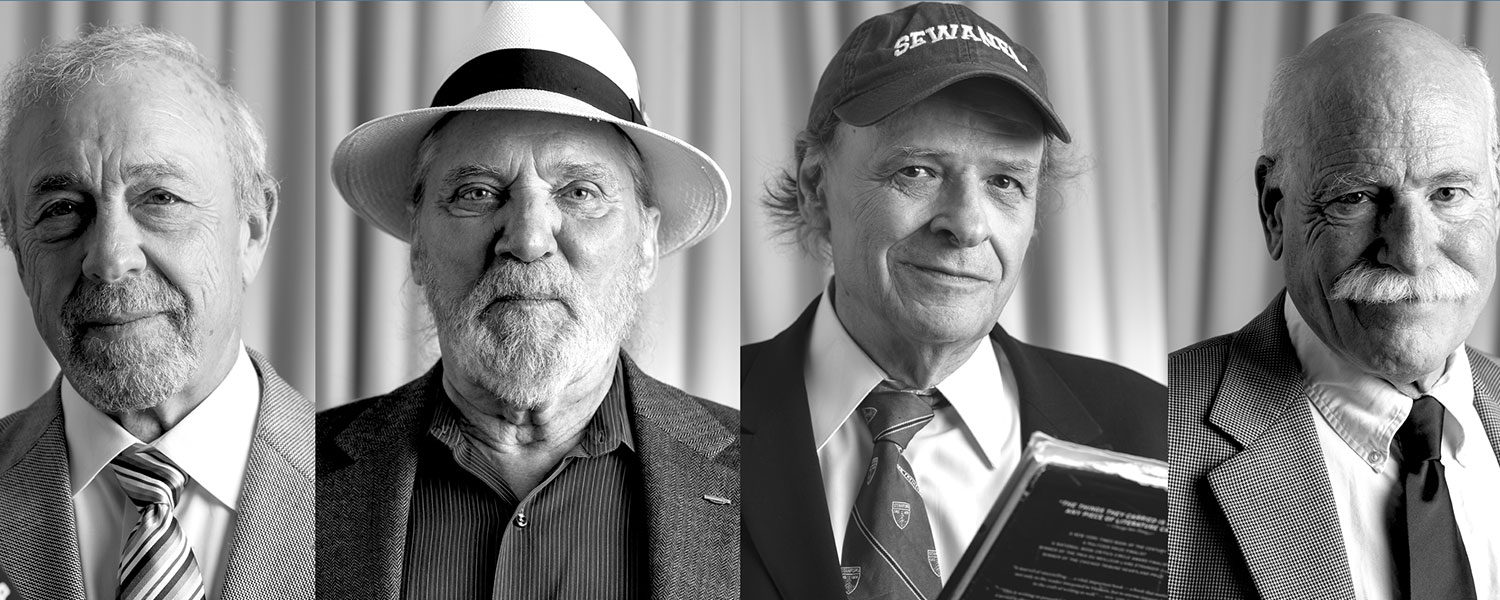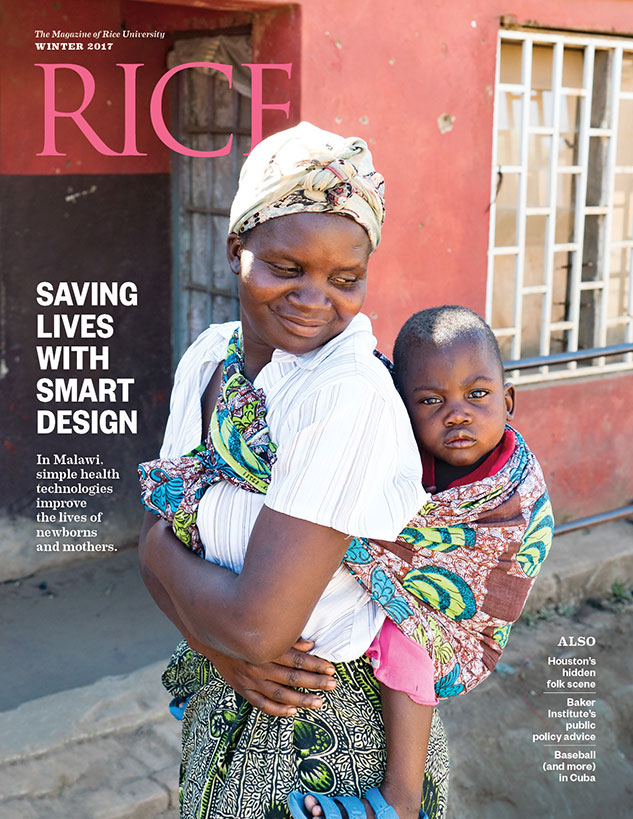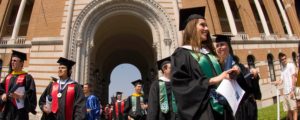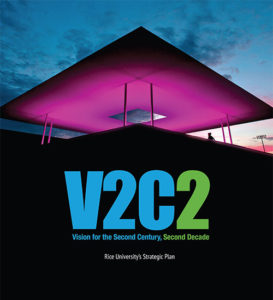Renowned veterans and authors mark the 50th anniversary of the Vietnam War
ON MARCH 8, 1965, PRESIDENT LYNDON B. JOHNSON DEPLOYED 3,500 MARINES TO VIETNAM, the first combat troops in a war that would eventually kill almost 60,000 Americans and 3 million Vietnamese. Just over 50 years after that initial deployment, four American veterans of the conflict — Tim O’Brien, Tobias Wolff, Philip Caputo and Larry Heinemann — gathered onstage at Rice’s Jones Graduate School of Business to discuss their memories of the war. The event was co-sponsored by the Baker Institute for Public Policy.
If those names sound familiar, it’s because each went on to become a renowned author after returning home from Southeast Asia. Together, the four men account for two National Book Awards, a PEN/Faulkner Award, a Pulitzer Prize and a National Medal of the Arts (bestowed the day after the writers’ panel, to Wolff). The idea to invite such a distinguished panel to Rice belonged to Mike Freedman, who chairs the Baker Institute Roundtable Young Professionals group. A Houston native and U.S. Army Special Forces veteran who served in Iraq, Freedman returned home in 2011 and enrolled in Rice’s MBA program, where he also led the Veterans in Business Association (VIBA).
“Originally, we wanted to bring in historians or famous Vietnam veteran business leaders or politicians. But writers just bring a different perspective. These are people who basically served their country twice. They went to Vietnam, and then they came back and spent the rest of their lives trying to process that experience through their writing,” said Freedman. To Freedman’s surprise, the four authors, arguably the most accomplished writers to emerge from the Vietnam War, had never shared a stage before.
The panel began with each author reading an excerpt of his work, followed by a wide-ranging Q&A session. One of the early questions was about the importance of truth in war literature. “In war, truth is especially elusive,” O’Brien answered. “I discovered things about myself that I thought were not only unknown but impossible. I could not behave the way I found myself behaving, partly out of frustration, partly out of terror, partly out of love for my fellow soldiers. ‘The Things They Carried’ is essentially an attempt to grapple with this elusive, slick monster we call truth.”
When asked how to write about war without glorifying it, Wolff admitted that even avowedly anti-war books like “All Quiet on the Western Front” or “A Farewell to Arms” can end up enhancing the mystique of war, especially for writers hoping to follow in the footsteps of their literary icons.
“Before I volunteered for the Army, I’d read Hemingway, I’d read Mailer, I’d read Erich Maria Remarque,” Wolff told the audience. “And there was no question at all that as a writer I regarded war as an experience that would equip me for my career. There was this predatory hunger for experience that can lead people into some pretty strange paths.”
Somewhat surprisingly given their reputations as antiwar authors, three of the four authors — O’Brien, Caputo and Wolff — said that if they had to do it all over again they would still volunteer to fight in Vietnam. The lone dissenter was Heinemann, who was drafted. “I didn’t want to go,” he said flatly. “I was distinctly not interested in being in the Army. The kind of everyday, ordinary, garden-variety harassment that we were treated to offended me.”
But the consensus view of the other three was summed up by Caputo, who said he might not have become a writer if not for his Vietnam experience: “When you ask that question, it’s almost like asking whether you would like to be born again. Who I was before Vietnam was pretty much mulch. Who I then became and am now was born in the war, as a result of the war. Whoever I am now, I owe to that experience. So, yes, I would do it again.”
Who I was before Vietnam was pretty much mulch. Who I then became and am now, I owe to that experience. So, yes, I would do it again. – Philip Caputo
By many accounts, the stories of these aging Vietnam War-era vets — by turns poignant, profane, darkly humorous and anguished — resonated deeply with the younger vets enrolled in Rice’s business school.
“While I was watching them speak, I was picturing them as young soldiers, and I was comparing them to some of the young soldiers I knew in the Army,” said Steve Panagiotou ’16, the current president of VIBA. “I’ve seen young guys get frustrated like that. You know, ‘Why are we doing this stupid stuff?’ These guys are in their 60s now, but I was imagining them as 18–, 19– year-olds. And the fact that as writers they’re putting themselves out there, opening themselves up, being vulnerable, I really admired that.”
Lillie Besozzi ’16, a U.S. Military Academy graduate enrolled in Rice’s MBA for Professionals program, identified with the writers’ still-raw emotions. “They were heartbreaking and validating in many ways,” she said, adding, “I think we all need to forgive ourselves a little — I wish I could have done more to help the soldiers I knew.” Besozzi helped run medical clinics across Iraq during the 2007 surge and has worked in hospital settings as an administrator after her service. In addition to her graduate program, she works at Rice as the assistant to the director of the new Doerr Institute for Leadership.
The packed-house event included a diverse audience of community members, literary figures, and Rice alumni and staff. “It was one of those moments that makes you really proud to be part of the Rice community,” said Jones School alumnus and Rice trustee Doug Foshee ’92.
“We had four of the greatest living American authors of the Vietnam era on a panel. For me it was one of the top events I’ve ever attended at Rice.”
words by Michael Hardy photos by Jeff Fitlow & Tommy LaVergne






